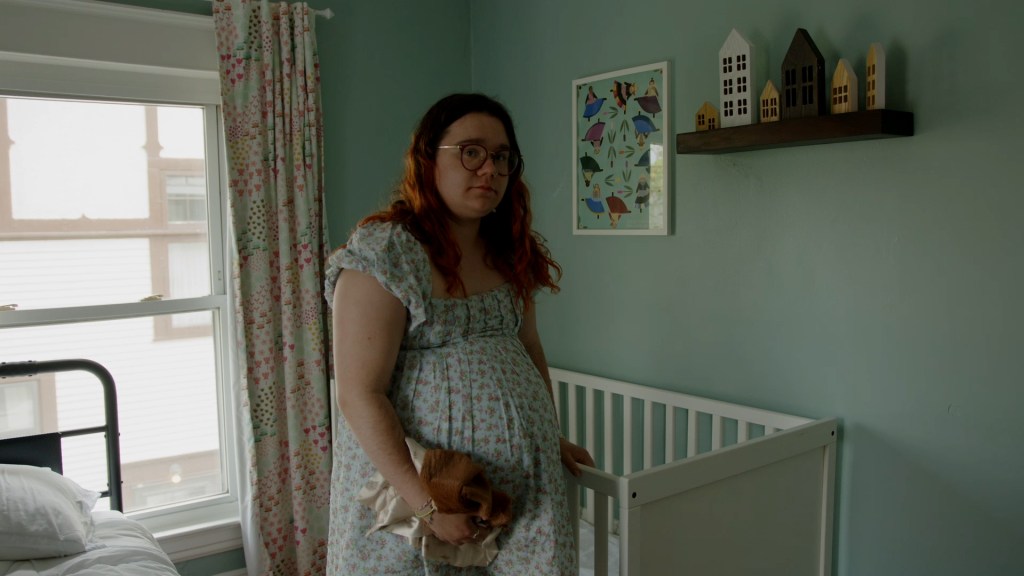Detransitioner describes agony of pregnancy after changing gender as a teen: ‘Makes me feel like a monster’
On June 3, Prisha Mosley, 26 gave birth to a healthy baby boy via C-section.
That doesn’t seem remarkable for a young woman of child-bearing years, but until about two years ago, Mosley identified as a man.
In her fruitless attempt to change genders, she pumped her body full of testosterone. At 18, she had her healthy breasts removed and was left with a mangled and scarred chest.
Her hormones were, and remain, wildly out of wack. In fact, when Mosely, who has detransitioned, saw a doctor because she missed her period, she laughed when he asked if she could be carrying a child. Sure, she was in a relationship with her boyfriend, but she assumed she was infertile.
“I still can’t believe I got pregnant,” she told me. “And I still can’t believe he’s healthy.”
But this miracle did not come without a myriad of complications and medical unknowns. Mosley is in unchartered waters, the first of a small group of detransitioning women who become mothers.
Medical interventions such as cross sex hormones can affect fertility — and Mosley started using testosterone when she was still developing.
“Every single thing that happens with the female body, especially when they are carrying and birthing a baby, has a purpose,” said Mosley, adding that her body’s mechanisms were greatly affected by testosterone.
After being essentially experimented on by doctors under the guise of “gender-affirming care,” she’s now sharing raw, intimate details about her unexpected but very fraught path to motherhood.
“I could go on and on how tremendous that weight is,” Mosely, who is now an Independent Women’s Forum Ambassador, said of speaking out.
Start your day with all you need to know
Morning Report delivers the latest news, videos, photos and more.
Thanks for signing up!
“But what’s worse is that it can happen to other people. The pain of imagining that someone else could feel or experience what I am experiencing makes the pain of being a public case study numb. It doesn’t compare. No one came and saved me when I was little. No one told me the truth.”
Sadly, Mosely now knows the truth. And it hurts.
Her body has been ravaged. She says her liver is big, her insulin is high. Her uterus, bladder and vagina atrophied. Her hormone imbalance caused the baby to be big, and her hips were too small to deliver vaginally.
“My muscles were used to carry a baby in ways that my hips couldn’t accommodate. I am in so much pain.”
As she notes, there is no standard of care for detransitioners. Doctors – she said in a short Kelsey Bolar documentary, “Prisha Mosley: A Detransitioner’s Pregnancy Journey” – simply don’t know how to treat her.
“It’s not good news, but it’s honest news,” said Mosley, adding her previous doctors and therapists who treated her for gender dysphoria were “so sure [in removing her breasts and pumping her with testosterone]. It was promise. I fully believed it because I needed to. I didn’t transition because I was having a good time. There was no neuroscience to change my brain, so I had to edit my body.”
Mosley’s gender confusion started at a young age when she discovered gender ideology online. She was suffering from severe anorexia, anxiety and borderline personality disorder and reeling from a sexual assault at 15, which resulted in pregnancy and a miscarriage.
Her eating disorder stymied her both emotional maturation and physical growth, specifically in her hip area.
At 15, she socially transitioned to male and at 17 she started testosterone injections. A year later she had a double mastectomy, performed by a plastic surgeon in North Carolina.
Then, motherhood was the last thing on her mind.
After living in the trans community for a few years, she realized, in therapy, that gender was not her issue. She detransitioned and is now suing eight of her medical practitioners, alleging they misled her into pursuing medical procedures and interventions that have turned her into a patient for life.
Mosley is particularly haunted by removing her breasts. She now has painful “rocks” that have formed under her chest, or what her doctor says are milk masses stuck under scar tissue with no outlet because her nipples were reattached and are merely, “decorative. My doctor said some breast tissue was not removed and I have milk coming in as a response to prolactin.”
Instead of a soft pillow for her baby, her chest is hard.
“It makes me feel like a monster. I put him on my chest and I don’t feel him.”
Mosley relies on donor breast milk, which she says has been integral to her son’s development. “He spent the first few days of his life searching for things on my chest that don’t exist. All he did was throw up. The only thing that stopped it was the donor breast milk,” she said.
Mosely, who is also helping to raise her boyfriend’s daughter, would love to have more kids. “But it’s also reasonable to think I can’t survive another pregnancy,” she said.
And yet motherhood, which she describes as physical agony but emotionally fulfilling, has brought unexpected healing.
“I had to become a home for someone else to let my body become a home for me.”
























